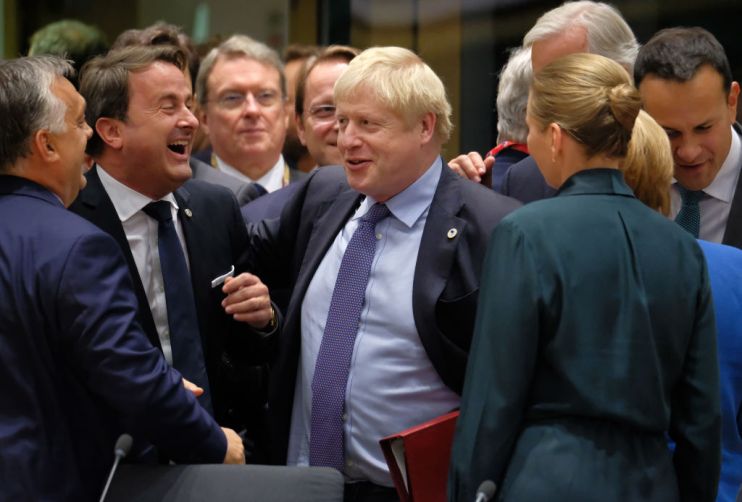PM Johnson scrambles to save Brexit deal ahead of key Saturday vote

The stage is set for a dramatic showdown in parliament this weekend, after a last-minute Brexit deal put the ball in Westminster’s court.
Boris Johnson claimed a victory yesterday morning with “a great new deal that takes back control” agreed just minutes before he left London for the European Council in Brussels.
The Prime Minister described it as “reasonable, a fair outcome and reflects a large amount of work undertaken by both sides”.
“It means we can deliver a real Brexit that achieves our objectives, and it means the UK leaves whole and entire on 31 [October],” he said. “It means every part of UK can take part in new trade deals… and take part as a single UK in decisions about borders, money and how we want to run the UK.”
He urged MPs in Westminster to “come together to get Brexit done, and do so without any more delay”.
European Commission president Jean-Claude Juncker said: “The deal is not about us, the deal is about people and peace, and I look forward to continuing our conversations with Boris… on 1 November.”
Juncker sought to rule out a further extension to the process, saying: “If we have a deal, we have a deal, and there is no need for prolongation. That is not only the British view – that is my view too.”
European Council president Donald Tusk said: “Today we have a deal, which allows us to avoid chaos and an atmosphere of conflict between the EU27 and the United Kingdom.
“Therefore, the European Council invited the Commission, the European Parliament and the Council to ensure that this agreement can enter into force on 1 November 2019. Now we are all waiting for the votes in both parliaments.”
Barclays Group chief executive Jes Staley told City A.M. it was “a very welcome development after a prolonged period of uncertainty”.
He added: “We’ve seen a very positive reaction reflecting confidence in sterling and UK stocks, which indicates how much uncertainty has acted as a brake on growth. There are ratification hurdles remaining but further certainty, at this stage, would be very welcome.”
The new agreement has effectively shifted the backstop into the Irish Sea, pleasing those who feared border checks on the island of Ireland, and appears to draw on the plans readied under Theresa May, including the proposal for tariff rebates for firms moving goods into Northern Ireland that do not progress into the Republic
Centre for European Reform trade expert Sam Lowe described it as “Chequers for Northern Ireland”.
The Democratic Unionist Party promptly rejected the deal, leaving Johnson’s team scrambling to win over MPs both from within his own party and from rebel Labour ranks.
The Eurosceptic group led by former Brexit minister Steve Baker, which counts around 28 ‘Spartan’ MPs, is expected to come out in favour of the deal, although one source said he expected the “dinosaurs” to side with the DUP.
Tory Remainers, some of whom were kicked out of the party last month for voting against the government, are also thought to be onside as a number of the 21 rebels hope to regain the whip.
Even some Labour MPs, particularly those in pro-Leave seats, are said to be toying with rebelling, despite party leader Jeremy Corbyn rubbishing the deal as “even worse deal than Theresa May’s, which was overwhelmingly rejected”.
Experts last night were crunching the numbers to predict the final outcome Johnson when he brings the deal forward for a parliamentary vote on Saturday.
Estimates appeared to agree the government was on course for a narrow defeat – meaning Article 50 could yet be extended to 31 January.
Main image: Getty